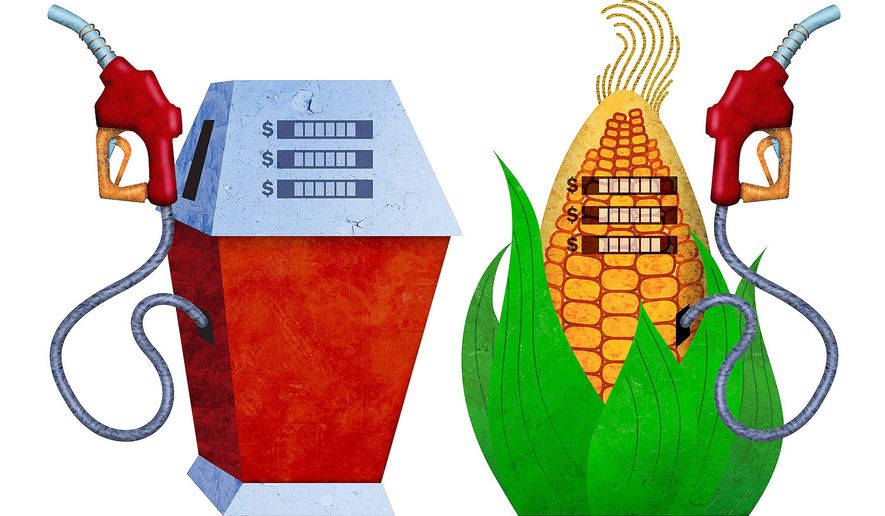Almost everyone reading this is aware that government interventions in the marketplace usually fail. From attempts to limit inflation in the 1970s to the sub-prime housing bubble in 2008, “government failure” is as real a threat to American prosperity as any “market failure” that’s occurred in the past half-century.
Despite these examples, politicians and their donors always seem willing to introduce new, perverse incentives into the marketplace, usually with good intentions, in order to achieve a short-term outcome.
The current law mandating ethanol use in gasoline is an example of one such government failure. Passed in its current form in 2007, the legislation mandated the blending of corn ethanol into the U.S. gasoline pool to a level of 10 percent to help curb expensive foreign oil imports at a time of very high oil prices. Unfortunately, the law didn’t take into account the potential for technical hiccups or unintended economic and political consequences.
First, the writers of the Renewable Fuel Standard (RFS) language assumed that gasoline use would continue to grow at a rate of roughly 1 percent per annum. Instead, the 2008 recession caused gasoline demand to decline by 6 percent between 2007 and 2012.
That, in turn, created a glut of ethanol that threatened to damage many older car engines by pushing the level of ethanol above the 10 percent threshold covered by engine warranties.
Second, the law assumed that cellulosic ethanol derived from non-food plants would be commonplace by around 2015, but researchers were never able to develop market-ready cellulosic ethanol, making it impossible for refiners to adhere to its ever-rising mandated use.
This situation has forced the Environmental Protection Agency to become a market intervener on a grand scale, upsetting both refiners and farmers. By some estimates, the ethanol market redistributes roughly $7 billion a year to corn growers and distillers from the refining industry, which, in turn, must try to pass the costs off on consumers. Meanwhile, the fracking revolution has more than doubled U.S. oil production since the mandate was passed, which makes the law irrelevant to U.S. energy security.
Given that the RFS mandate expires in 2022, it’s possible an opportunity to escape this policy maelstrom will present itself. As difficult as it will be to dislodge parts of the farm economy from its government-created ethanol dependence, U.S. consumers will benefit in the end.
• R Street Institute is a nonprofit, nonpartisan, public policy research organization. Its mission is to engage in policy research and outreach to promote free markets and limited, effective government. Please follow @RSI.




Please read our comment policy before commenting.